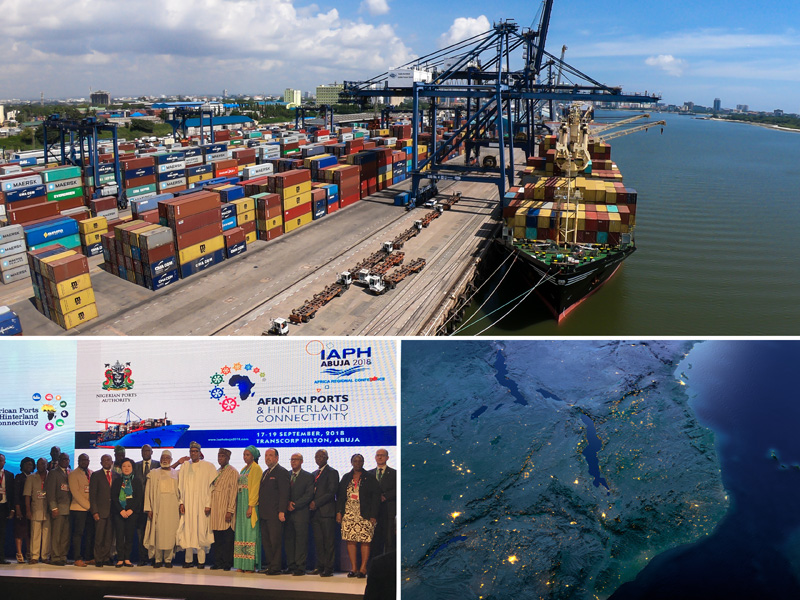When a ship comes into port it may be the end of a voyage, but just the beginning of a range of administrative tasks that need to be completed. The port is unlikely to be the final destination for the cargo – which will need to be unloaded and forwarded in a variety of ways. This requires logistics and infrastructure that connects the port to other inland places and regions – known as ‘hinterland connectivity’.
This was the issue under the spotlight at the first regional conference of The International Association of Ports and Harbors (IAPH) in Abuja, Nigeria (17-19 September), inaugurated by the President of Nigeria. The conference brought together African ports, port operators, corridor management organisations and international organisations* to discuss the subject in the context of Africa – a continent in which 15 of 54 countries are landlocked. Africa is the world's second largest and second most-populous continent, with six of the ten fastest-growing economies in the world.
IMO took part in the event, as part of the Organization’s on-going efforts to strengthen its cooperation with ports and to encourage their participation in the work of IMO.
A key IMO treaty concerning Facilitation of International Maritime Traffic (FAL) regulates and streamlines the administrative tasks as ships come into port. These include declarations of cargo, import and export permits and many more. When properly applied, FAL helps shipments move more quickly, easily and efficiently.
* International organizations including the WTO, World Bank, UNCTAD, European Commission, African Union, African Development Bank and Pan-African Association for Port Cooperation, together with ports from Asia, Europe and the US.
